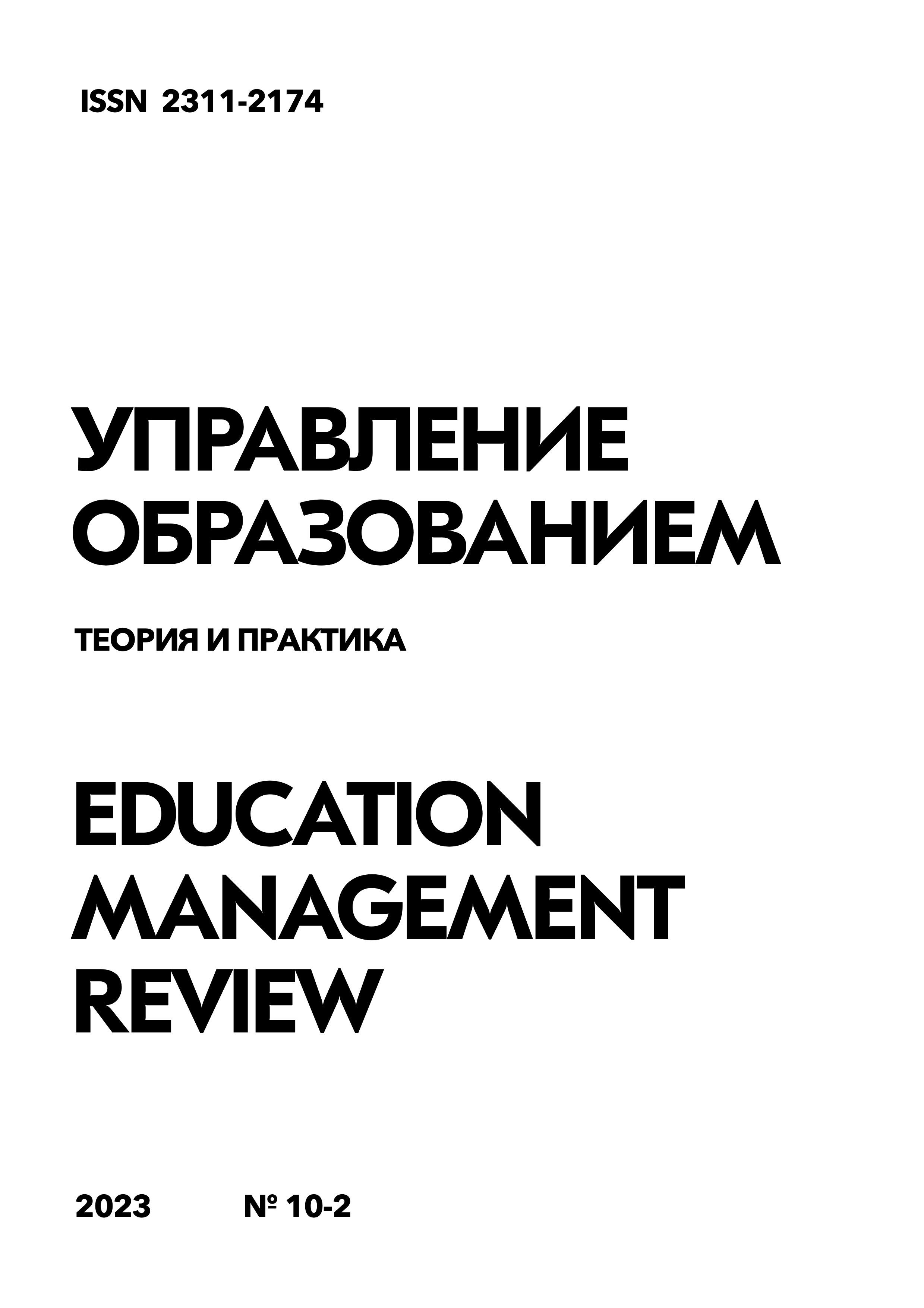Reverse mentoring in the Financial literacy teaching system
DOI:
https://doi.org/10.25726/o3818-1955-6549-dKeywords:
mentoring, reverse mentoring, financial literacy, interactionAbstract
The article attempts to theoretically substantiate and experimentally verify the system of reverse mentoring as an important factor in the formation and disclosure of the personal potential of the subjects of education. Reverse mentoring is considered as a tool for the formation and development of human capital, which, in turn, acts as a basic systemic phenomenon of a meta-subject nature and is becoming increasingly relevant in the modern pedagogical system. It is proved that mentoring does not depend on age, the usual mentoring from teacher to student does not always remain effective and, therefore, a completely different way of developing and implementing a mentoring system is possible. The model of organization of reverse mentoring on financial literacy at the university is proposed. The stages of mentoring activity in the practice of teaching financial literacy are substantiated. The stages and results of the pedagogical experiment are described in detail. The conducted research and experiment showed that the main goals were achieved, the participants of the experiment (mentors) not only formed subject, meta-subject competencies, but also thought seriously about the nearest pedagogical activity in this system. A large number of students-participants of the reference group had a high motivational level to master the discipline; skills of multi-age interaction on financial literacy; self-awareness as a future teacher who will have to communicate in a new reality.
References
Авторский семинар «Вопросы экономической безопасности в быстроменяющемся мультикультурном мире» прошел на ТЭФ. URL: https://www.tspu.edu.ru/news/24828-avtorskij-seminar-voprosy-ekonomicheskoj-bezopasnosti-v-bystromenyayushchemsya-multikulturnom-mire-proshel-na-tef.html (дата обращения 15.03.2023).
Бездудная А. Г., Растова Ю. И., Львин Ю. М. Обратное наставничество как корпоративная социальная инновация: проблемы и возможности // Известия Санкт-Петербургского государственного экономического университета. 2023. № 1. С. 101-105.
Блинов В.И., Есенина Е.Ю., Сергеев И.С. Наставничество в образовании: нужен хорошо заточенный инструмент // Профессиональное образование и рынок труда. 2019. № 3. С. 4–18.
Ганаева Е.М., Масловская С.В., Муратов А.А. Наставничество как ресурс профессионального развития педагога // Вестник оренбургского государственного университета. 2020. № 5 (228). С. 91-98.
Зарецкий М.Ф. Наставник и педагогика. Л., 1876. 150 с.
Зюликова А.О. Обратное наставничество: необходимость или потакание моде? // Юный ученый. 2022. № 7 (59). С. 49-52.
Нестерова О.А., Санфирова О.В., Янгирова В.В. Исследование роли интерактивных методов обучения в преподавании экономических дисциплин поколению Z // Материалы XI Всероссийской с международным участием научно-практической конференции «Профессиональное образование: проблемы и достижения», Томский государственный педагогический университет. 2021. С. 211-216.
Петров М.К. Язык, знак, культура. М.: Наука, 1991. 328 с.
Создание личного бренда финансовой активности обсудили в ТГПУ. URL: https://www.tspu.edu.ru/news/24734-sozdanie-lichnogo-brenda-finansovoj-aktivnosti-obsudili-v-tgpu.html (дата обращения 15.03.2023).
Соина В.М. Наставничество как предмет научной рефлексии // Мир науки, культуры, образования. 2020. № 5 (84). С. 232-234.
Студенты и педагоги ТЭФ реализовали игру «Экономическая безопасность и поведенческая стабильность субъектов на финансовом рынке» для школьников Томска. URL: https://www.tspu.edu.ru/news/24936-studenty-i-pedagogi-tef-realizovali-igru-ekonomicheskaya-bezopasnost-i-povedencheskaya-stabilnost-sub-ektov-na-finansovom-rynke-dlya-shkolnikov-tomska.html (дата обращения 15.03.2023).
Челнокова Е.А., Тюмасева З.И. Эволюция системы наставничества в педагогической практике // Вестник Мининского университета. 2018. Т. 6. №4. С. 11-26.
Чистякова Н.А. Образ героя-предпринимателя в русской классической литературе как залог социально ответственных принципов современного российского предпринимательства // Управление образованием: теория и практика. 2021. № 1(41). С. 349-356. DOI 10.25726/b2601-8472-1780- v. EDN WXVQMJ.
Шакирова Д.М. Стратегии, формы и приемы наставничества: международный и региональный опыт // Современное образование: актуальные вопросы и инновации. 2019. № 4. С. 323-335.
Schultz T. Capital Formation by Education / T.W. Schultz // Journal of Political Economy. Vol. 68, 1961. C. 571-578

